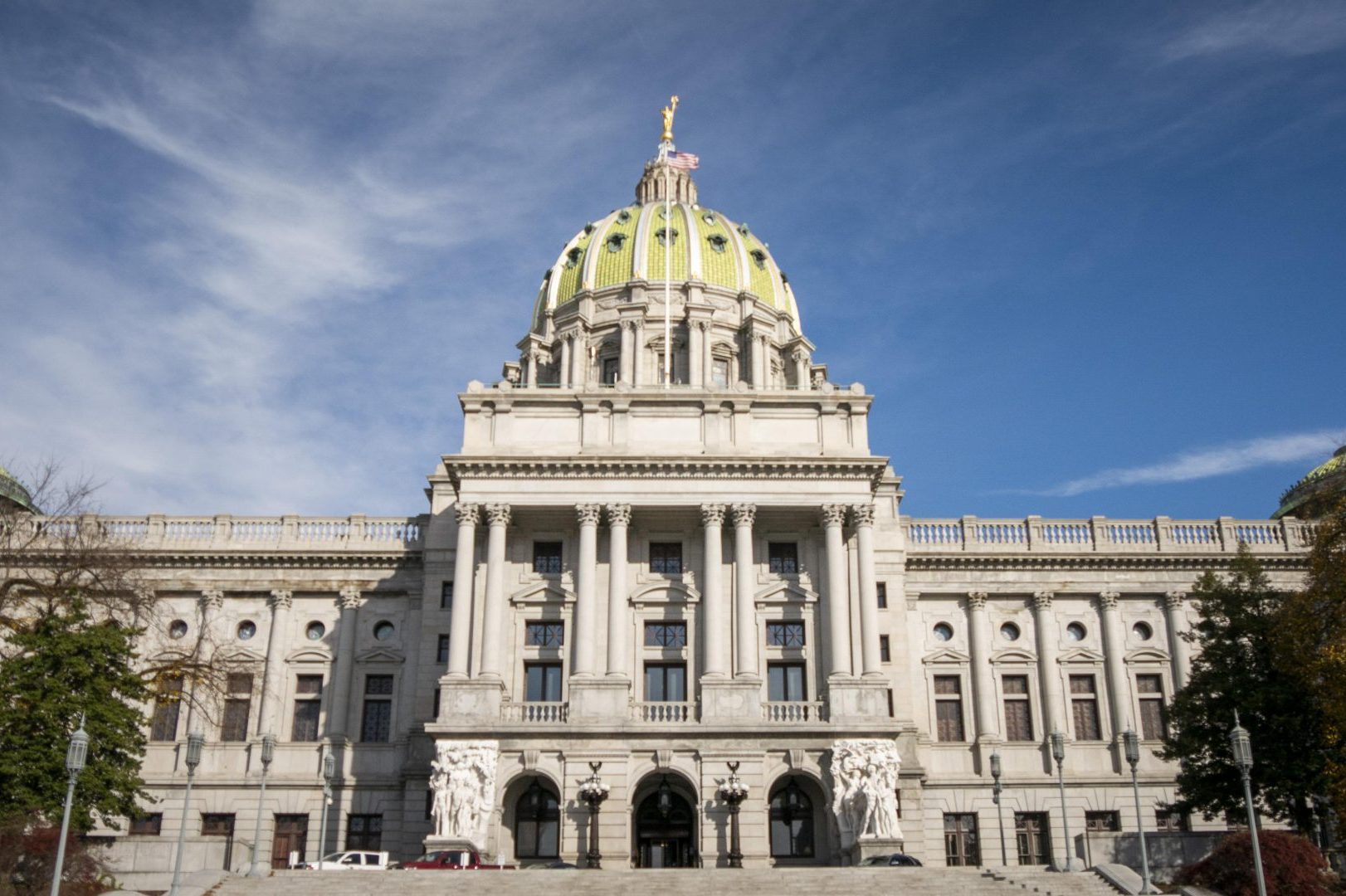It’s called the “revolving door.” That’s when a former government official takes a position as a lobbyist for an industry—or vice versa. And in Pennsylvania, that can often mean former government regulators going to work for the natural gas industry. In fact, according to a report by StateImpact Pennsylvania, nearly 40 high-level people have switched sides in the last decade.
“I noticed between the Corbett and the Wolf administrations, a lot of the people who were perhaps sitting up next to the secretary of the department during budget hearings moved to the back of the room as a lobbyist,” says StateImpact’s Marie Cusick.
Cusick says she also noticed many familiar names from the Democratic Rendell administration resurfaced for positions in the Democratic Wolf administration. That’s not surprising in itself, since it’s common practice for parties to recycle staff from previous administrations. But Cusick says the picture becomes a bit more nuanced when you take into account Wolf and Rendell’s contrasting approaches to the gas industry.
“The [Republican] Corbett administration got criticized for being too close to the gas industry,” Cusick says. “But it’s really worth remembering that it was the Rendell administration that welcomed the industry into the state and leased out hundreds of thousands of acres of public land for drilling. And many of the people who were in the Rendell administration are back in the Wolf administration.”
LISTEN: “The Revolving Door Between Government and Industry”
For example, Wolf tapped former Rendell administration official Katie McGinty to serve as his Chief of Staff in 2015. McGinty was Rendell’s Department of Environmental Protection Secretary from 2003 to 2008. In between, McGinty served on the boards of two energy companies and was managing director of a consulting firm that is part of the Marcellus Shale Coalition—the drilling industry’s top trade group in Pennsylvania. McGinty is now running for U.S. Senate.
The Wolf administration has taken a different approach to energy issues—often earning criticism from the industry for its pursuit of stricter policies and regulations.
For now, Cusick’s reporting has only tracked the movements of officials and lobbyists. She says next she plans to look into whether this revolving door between the public and private sectors led to decisions that were favorable to industry.
“I would like to dig into some of these resumés because looking through these businesses people are affiliated with, some of them have gotten sizable state grants,” Cusick says. “[That] doesn’t necessarily prove anything. But I think you do have to be careful when you’re a public official. You have influence over how public money is spent. I think the public deserves to have confidence that you’re acting in the public interest, and you’re not just thinking about the next job you might get.”
Pennsylvania does have a state ethics law that bars former government employees from lobbying the government body they were associated with for one year after employees leave. But Cusick says government reform groups often point out the law has some pretty large loopholes.
“For example, if you worked in the State House, you couldn’t lobby the House, but you can lobby the Senate or the governor’s office,” Cusick says.
Advocates would like to close these loopholes and expand the “buffer” period to two years.


